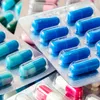COVID-19 drug Remdesivir manufacturer BDR Pharmaceuticals eyes IPO in the next 3-4 years
From venturing into biosimilars, opening a unit in the US to preparing for an IPO, the Mumbai-based company now has a lot on its plate.
While the COVID-19 pandemic came as a surprise for many in India, Mumbai-based was already prepared to deal with the situation.
There were two reasons. First, it was already producing Remdesivir— which is used to treat COVID-19 in hospitalised patients—because the drug was also used in the treatment of the Ebola Virus which broke out in Africa in 2013.
Second, the company was already monitoring the situation in China in the early days of the pandemic. This helped it equip itself better when India’s turn to face the pandemic came.
“We had all the capabilities,” Dharmesh Shah, Chairman and Managing Director, BDR Pharma tells SMBStory.
The demand for Remdesivir, which was developed by Gilead Sciences, grew overnight amid the pandemic. BDR says that at one point in time, it was producing over eight lakh units a month, with one batch taking about 80 hours to complete.
This is how the Active Pharmaceutical Ingredients (APIs) manufacturing company became a key player in the fight against the pandemic. In this context, APIs refer to the active ingredient in medicine. For instance, the active ingredient included in a painkiller to relieve the person would be called an API.
The company has now garnered investor interest. Recently, BDR received funding of Rs 685 crore from Multiples Private Equity by diluting 9.3 percent of the equity at a valuation of Rs 7,365 crore.
BDR Pharma plans to use the fresh funds to build a facility in the US, start manufacturing some complex molecules and get into biosimilars (an identical copy of the original product manufactured by a different company), a move which is expected to put it in the same league as Indian pharma giants such as Biocon, Cipla, Dr Reddy’s, and more.
It is also eyeing an Initial Public Offering (IPO) in the next 3-4 years.

The journey
Dharmesh Shah completed a degree in Chemical Engineering from Mumbai University in 1987. After working in the manufacturing, pharmaceuticals, paint, tyres, and HDPE (High-density polyethylene) and LDPE (low-density polyethylene) Industries for several years, he joined Hetero Drugs Limited in 1997. The company produces and markets anti-retroviral drugs, particularly in Latin America, the Middle East, Sub-Sahara, and Africa.
He was the Business Development Director in the company and was also heading marketing for the business.
During his travels across the world, Dharmesh found that the oncology market in India was dominated by foreign players. He wanted to fill this gap and build a company that would focus on critical ailments like cancer.
Dharmesh resigned from Hetero Drugs Limited and set up BDR Pharmaceuticals in 2002.
While the company began as a manufacturer of APIs for the critical care segment, it now makes full dosages as well. Additionally, BDR focusses on four segments—oncology, critical care, neurology, and gynecology.
The founder says he realised the importance of the oncology segment when his father was diagnosed with cancer in 2004.
“I witnessed the pain and agony of the people who could not afford treatment. I wanted to work towards making the drugs accessible and affordable,” he adds.
Recently BDR launched Biapenem 300 mg injectible in the antibiotic segment and Sugammadex injectible in the anesthesia segment for the first time in India.
It also launched Cabozantinib for the first time in the country after getting the license from Drugs Controller General of India (DCGI). The drug is used to treat metastatic medullary thyroid cancer, advanced renal cell carcinoma, and hepatocellular carcinoma.
The company has several facilities across Mumbai, Savli, and other cities.
BDR Pharma’s units, which are 100 percent owned by Dharmesh, are certified by WHO GMP (World Health Organisation Good Manufacturing Practices), COFEPRIS-Mexico (Federal Committee for Protection from Sanitary Risks), and Brazilian Health Regulatory Agency.
Fighting the pandemic and more
A recent market research report has stated that the APIs market stood at $11.807 billion in the financial year 2021 (FY2021) and is expected to grow at a compound annual growth rate (CAGR) of 12.24 percent during the forecast period (2021 to 2027).
According to several reports, India and China are the top markets for manufacturing pharma APIs. However, China is considered the API Pharmacy of the world since it exports most of the raw materials for the industry.
Dharmesh says that BDR Pharma had tie-ups with several companies in China from where it sourced the raw materials for manufacturing Remdesivir. “During the second wave, China increased Remdesivir’s raw material prices from $4,500 per kg to $8,500 per kg.” Dharmesh said the company succumbed to their tactics due to the pressure to put the product out in the market.
“This completely ripped us apart,” he says, adding that the prices of Remdesivirs doubled up as a result but now the focus is on becoming self-reliant.
At the height of the pandemic, the drug cost Rs 5,400 per vial.
Toward new horizons
Dharmesh started BDR Pharma with Rs 10 lakh and it has largely been a bootstrapped venture.
Prod him why he decided to raise money from an investor who might have an exit in mind a few years down the line, he says, “We voted to ensure that whatever reserve surplus we have, will be taken care of for the growth of our existing business and the new investments which we are planning to make will happen with the money we raise money via dilution and prepare ourselves in three to four years to go for an IPO.”
BDR Pharma says revenues also doubled during the pandemic. Gross revenue for FY21 was Rs 1,104.36 crore as compared to Rs 517.33 crore clocked in FY20. The company’s export turnover also saw a jump of more than 4x increasing from Rs 174.25 crore to Rs 1104.36 crore during the same period. The company has been profitable since its first year when it made a profit of Rs 2 crore.
It has four subsidiary companies including BDR Lifesciences, Magnum Chemi, Virdev Intermediates Pvt. Ltd., and Cibeles Pharmaceuticals. Among the four subsidiaries, BDR Lifesciences is the highest contributor to the overall revenues of the company.
Running BDR Pharma for more than 20 years now, Dharmesh says that the pharmaceutical industry is extremely challenging and “not as rosy as it looks.”
However, the situation is changing now. He says that the government's increased focus on this sector has enabled it to get approvals faster.
“Making affordable medicines can help you serve the country and you can also create a fortune for yourself,” he says before signing off.
Edited by Affirunisa Kankudti








